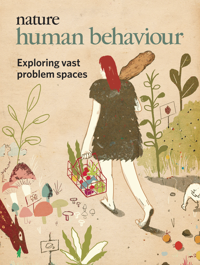The foundations of efficient human exploration
Time
Thursday, 30. January 2020
15:30 - 16:30
Location
F420
Organizer
Prof. Dr. Wolfgang Gaissmaier
Speaker:
Charley Wu, Harvard University
Charley Wu is a Postdoctoral Fellow in the Department of Psychology at Harvard University. He investigates human learning and decision-making with neat computational modelling and behavioural experimentation. He is currently collaborating with Wolfgang Gaissmaier and Wataru Toyokawa to extend his information-search model to social settings. He also uses VR techniques to test human behaviour.
Papers include "Generalization guides human exploration in vast decision spaces" (Nature Human Behaviour)
The Foundations of efficient human exploration
How do people navigate the vastness of real-world environments where the number of possibilities vastly exceeds the limits of our own experience? I propose two complementary solutions: i) generalizing previous experiences to predict novel outcomes and ii) learning from other people. The first part of my talk presents a computational model of human learning and exploration, where generalization and representations of uncertainty guide decision-makers to search effectively in vast problem spaces. Across spatial, conceptual, graph-structured, and risky domains, this model outperforms a wide range of alternatives in predicting out-of-sample search behavior, simulating human-like learning curves, and predicting human judgments. Yet we do not only learn from our own experiences, but also from that of other people. The second part of my talk lays the ground work towards a theory of social learning, which differs in important ways from learning from the environment. Social learning requires specialized mechanisms for understanding who to learn from, how to integrate social information with individual experiences, and how to balance the social dynamics of cooperation and competition. Using evolutionary simulations, VR experiments, and data from online games, I chart a course towards a deeper understanding of the dynamics of social learning. Taken together, my work seeks to better understand the foundations of how humans learn from interacting with the world and each other.

